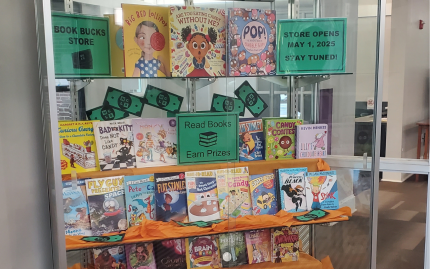Making Money Smart Students
Financial literacy doesn't have to be restricted to April. Make money-smart students any time of year.
Financial literacy doesn't have to be restricted to April. Make money-smart students any time of year.

Patrons were invited to get a first peek at a financial literacy exhibits at an event with art projects, poetry and more.
With a traveling exhibition, the Mid-Continent Public Library is helping patrons learn about saving, spending and avoiding fraud.
April is Financial Literacy Month. Start your preparation now with these program ideas, book suggestions and resources to get kids involved.
Financial educators recommend teaching basic money concepts as early as three years old. One way to achieve this in your library is by incorporating financial literacy themes into your storytimes.
This new guide helps libraries build financial education collections and offers an assortment of programming ideas to transform learning about money into memorable experiences.

To encourage financial literacy in the community, participants recorded what they read on their personal "NCLS Book Bucks Log" and earned one "book buck" per title. "Book bucks" could be redeemed for small prizes.
If your library struggles with tween engagement, you’re not alone. Perry County District Library proves that tween engagement is possible and totally enriching.

We love our pets, but let's face it — they take a bite out of the family budget! It's important for kids to understand that pet ownership comes with responsibility and the need for good money management skills. Pet Cents uses pet ownership as a basis for learning about budgeting, wants vs. needs, and coping with the unexpected.
Check out these four new fun online games to teach kids fundamental financial skills inside and outside of the library.